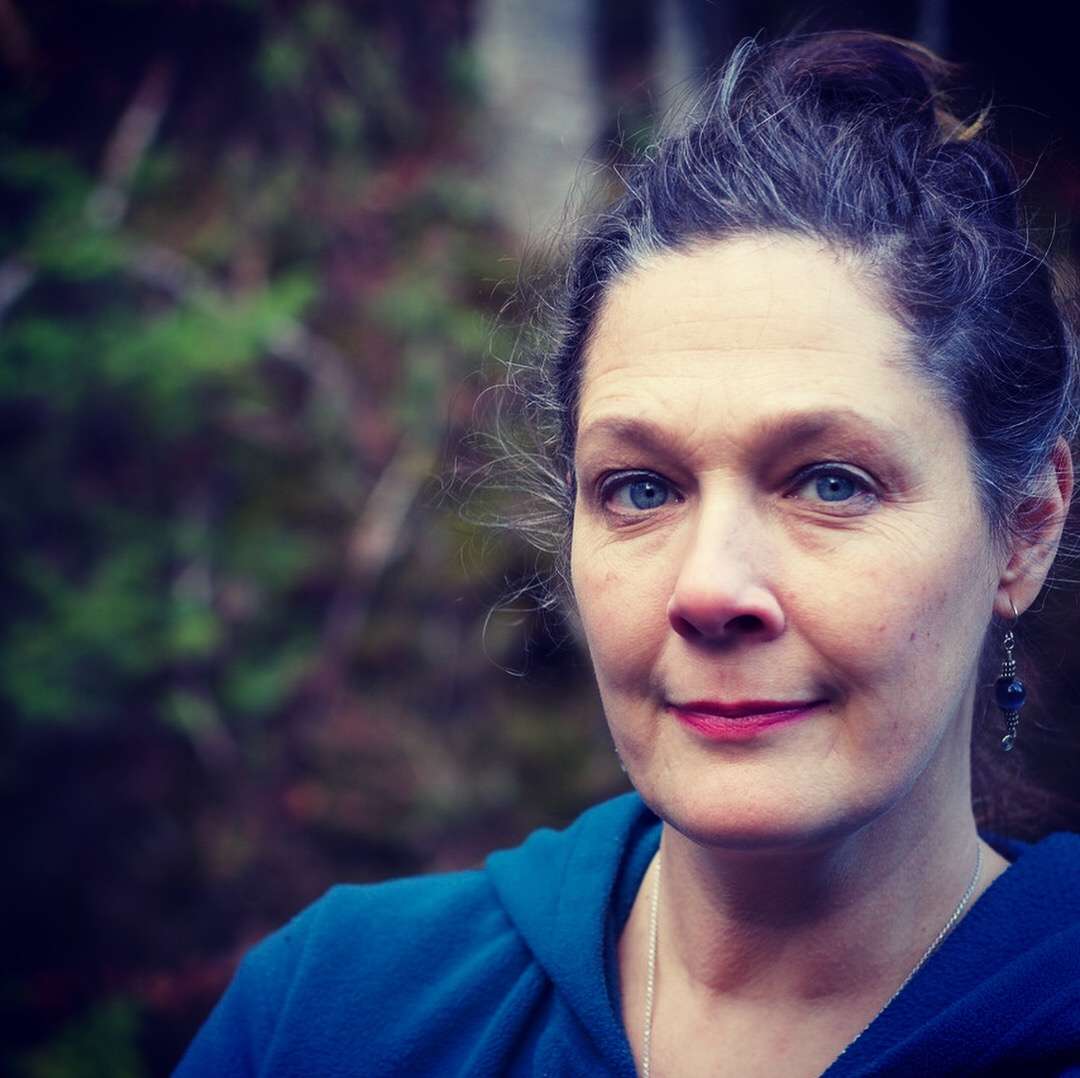When a client has experienced loss of a loved one, a relationship, career, or sense of self, Lori’s calm, listening presence and skill is supportive and non-judgemental. Lori has experience working with dying persons and their families, bereaved persons, young adults, parents, caregivers, and professionals who seek support in order to find greater work-life balance. If you feel overwhelmed by anxiousness, are experiencing depression, or need support with the many feelings that arise with life transition, grief, and bereavement, Lori’s approach may be what you are looking for.
Lori is a member of the Canadian Counselling and Psychotherapy Association (CCC #3865) and a registered individual psychotherapy provider for Veterans and family members through Veteran’s Affairs Canada, and Medavie Blue Cross. Many insurance policies cover my services but coverage depends on your policy.
Lori received a Bachelor of Fine Arts from Concordia University (1990), a Master of Arts in Somatic Psychology from the California Institute of Integral Studies (1995), and an Interdisciplinary PhD at Memorial University of Newfoundland (2019). She is a Somatic Experiencing® Practitioner (SEP), certified by the Somatic Experiencing® International (SEI), and an active Clinical and Somatic Practitioner member of the United States Association for Body Psychotherapy (USABP).
I grew up in St. John’s, Newfoundland and spent childhood summers both in town and around the bay, in the woods and on beaches in Conception Bay North, where I learned to love the trees, water, birds and other critters of the Earth. As a teenager I had the privilege of participating in the early years of Sound Symposium – a new music and sound event founded by percussionist, teacher and cultural leader Don Wherry (1935-2001) and his wife Kathy Clarke Wherry who continues the event today. I attended workshops with important new music and interdisciplinary artists whose work had a formative impact in my life, feeding my own embodied sense of inquiry and play and introducing me to the ways of Deep Listening and improvisation.
My psychotherapy practice, scholarship and art all begin with listening and returning to body wisdom. I have cultivated these ways through my own challenges and struggles and the blessings of life’s journey. I have had wonderful teachers, friends, and community support along the way. Some of my most important teachers have included Lee Saunders, Ian J Grand, and Don Hanlon Johnson.
After years living and studying in Montreal and San Francisco I returned to St. John’s in 1997 where I continued raising my son as a single parent. Continuing more than 30 years of interdisciplinary art practice, I now collaborate with artists – writers, dancers, theatre artists and musicians– offering a unique somatic and spiritual care approach to creative process, dramaturgy and production. I also continue contribute the occasional sound design and musical scores for independent film and contemporary dance.
In 2016 I launched Resonance to focus my energy on offering individual therapy for adults, as well as group work including retreats and listening walks. Research interests have included my doctoral inquiry into climate change experience, loss, threat, and adaptation, and how to support persons and nervous systems to engage creatively, and in ways that move towards greater ecological and social justice.
I live in the woods at Maddox Cove, looking out over Motion Bay, near St. John’s, Newfoundland.
Looking for a therapist? At Resonance Somatic Therapy Associates we honour the whole person, while listening to the wisdom of the body. Lori Clarke and associates offer holistic body-centred psychotherapy and creative arts therapy in St. John’s, Newfoundland, and also online. Lori Clarke is a trusted therapist for trauma healing, moving through grief, overcoming anxiety and depression, developing a healthy relationship to anger, and cultivating creativity. If you are hoping to deepen your awareness of embodiment, connect to vitality, and find greater balance in life, relationships and work, you have come to the right place. Please check back for details about our new associates coming in January 2023!
Thanks for visiting the Resonance website! Please contact us if you have questions.


Save
Save
Save
Share this:
Resonance Counseling & Consulting LLC. Dr. Margaret Eichler PhD LPC NCC ACS. Serving children, families, couples, and individuals with psychotherapy, as well as Clinical Supervisor for students/therapist seeking licensure.
Client Centered and Creative Therapies are used to explore emotional awareness & regulation as well as self-awareness, meaningful life experience and relationships within the context of Trauma Informed Care.
The therapeutic relationship is the ground for safety in the client lead explorations. Clinical work involves stabilizing somatic and emotional “dysregulation”, the processing of interrelation and human attachment dynamics as well as integration of overwhelming and traumatic life experiences. Through the lens of trauma informed care, a resiliency focused system, multi perspective problem solving and skill development a client can strengthen their abilities for positive self-care and to engage in their ongoing meaningful life growth.
Specialty in Cult Recovery: Extensive experience in working with folks (all generations) to treat the traumatic impacts of being involved in a destructive cult. I provide trauma informed treatments and therapy, consultations including family members as well as supervision of those clinicians and professionals working with clients involved in destructive cults. I have provided professional presentations and trainings to mental health professionals as well as multi-disciplined teams of professionals.
SERVICES
- Therapeutic Counseling
- Supervision
- Supervision of Clinicians providing Supervision
- Professional Consultations
- Private Practice Development
- Trainings and Education
- Research Design both Quantitative & Qualitative
Returning clients can book online, here. Please note, there is waitlist of a few weeks for new clients at this time and at Resonance we don’t like to ask clients to wait without chatting first. To inquire about what to expect in somatic psychotherapy, to ask other questions, or to be included on the waitlist please connect through the confidential form below and we will arrange a brief phone consultation.
*If this is an emergency please call the Mental Health Crisis Line at 1-888-737-4668. Other health and community services help lines in Newfoundland and Labrador may be found here.
Share this:
Like this:
Like
Loading…
Somatic therapy, also known as somatic experiencing therapy, is a therapy that aims to treat PTSD and other mental and emotional health issues through the connection of mind and body. This body-centric approach works by helping to release stress, tension, and trauma from the body.
Unlike standard mental health therapy, such as CBT which focuses prominently on the mind, somatic therapy incorporates body-oriented modalities such as dance, breathwork, and meditation to support mental healing. In addition, somatic experiencing therapy sessions include talk therapy and mind-body exercises.
Types of Somatic Therapy
The most common and straightforward form of somatic therapy is known as such or as somatic experiencing therapy. In this therapy, patients discuss their problems as in other forms of mental wellness therapies. Rather than just talk about them, somatic therapists guide patients to focus on their underlying physical sensations. From there, the mind-body exercises may include breath work, meditation, visualization, massage, grounding, dance, and/or sensation awareness work.
Beyond the standard somatic therapy, numerous subgroups use its framework in specific ways. These include:
- Sensorimotor psychotherapy: A comprehensive therapy that uses the body as both a source of information and intervention targets.
- The Hakomi Method: Psychotherapy that integrates scientific, psychological, and spiritual sources, focusing on four core concepts: gentleness, nonviolence, compassion, and mindfulness.
- Bioenergetic analysis: Body-psychotherapy that combines bodily, analytic, and relational work based on understanding energy.
- Biodynamic psychotherapy: A combination of allopathic (medical) and holistic therapy modalities that include physical massage by the practitioner
- Brainspotting: In addition to mind and bodywork, this therapy incorporates eye positioning to retrain emotional reactions.
Techniques
Somatic therapy operates off the idea that what happens to you in your life is stored not only in your mind but also in your body. By focusing on both the physical sensations in your body and the discussion of your problems, it is a comprehensive approach to therapy. Somatic therapy techniques include:
- Developing more awareness of your body and its sensations
- Calling upon emotional resources
- Grounding
- Encouraging detailed descriptions
- Movement, including acting out of physical feelings
- Learning tools to calm oneself
- Alternating focus between something stressful and something not stressful to help release tension
- Replaying past situations with new physical tools
- Emotional release
- Strengthening boundaries
What Somatic Therapy Can Help With
Anyone can try somatic therapy as an alternative to conventional talk therapy. It is used for a variety of mental and physical health issues.
Mental health issues that somatic therapy is used for include:
- PTSD
- Anxiety
- Addiction
- Grief
- Depression
- Stress
Physically, somatic therapy may assist with:
- Chronic pain
- Digestive disorders
- Sexual dysfunction
Because of its focuses on grounding and mindfulness, this therapy can be an effective option for anyone looking to get more in touch with themselves and their experiences in life.
Effectiveness
Somatic therapy has been shown to be an effective form of therapy for numerous psychiatric and physical issues.
Post-Traumatic Stress Disorder
Treatment for PTSD with somatic experiencing has been proven to be an effective method to speed up the time needed to heal from a traumatic event.
Initial studies of somatic therapy have found it to be an effective treatment for PTSD, noting, “mixed model linear regression analysis showed significant intervention effects for posttraumatic symptoms severity (Cohen’s d = 0.94 to 1.26) and depression (Cohen’s d = 0.7 to 1.08) both pre‐post and pre‐follow‐up.”
In other words, somatic therapy may be an effective therapy method for PTSD, although further research is needed to understand what specific patients will benefit most from this type of treatment.
When victims of a tsunami were studied, the results stated, “90% of participants reported significant improvement or being completely free of symptoms of intrusion, arousal, and avoidance. The results support the effectiveness and reliability of this modified version of Somatic Experiencing Therapy in working with trauma reactions.”
Chronic Pain
It might seem surprising to some people that a form of psychotherapy can help with physical pain, but it has shown to be the case. In one study, Somatic therapy was proven effective as a treatment for cervical myofascial pain, and the effectiveness was not increased when acupuncture was added.
Things to Consider
As with any form of therapy, it’s essential to be in an emotional and mental place where you have the time and energy to process complex feelings. If you’re doing somatic therapy in person, touch is often involved. Because of that, it’s wise to ensure you don’t mind being touched by another person.
Boundaries and consent play vital roles in touch, and you will never be touched without consent.
Somatic therapy is not considered to have any risks that are specific or unique to its format.
How to Get Started
If you’re interested in trying somatic therapy, follow these tips to get started.
Find a Therapist
The first step to starting somatic therapy is to find a therapist in your area. Depending if you want to see someone in person or virtually, you may need to look for someone doing telehealth. If you’re looking for an in-person experience so that you also receive the benefits of touch-oriented treatments, add your location into a search engine field along with your query.
Somatic therapy is common enough that you should be able to find one in most major cities. If you’re looking for a virtual therapist, check online to make sure that your potential therapist has positive reviews.
It’s important to note that most somatic therapists do not work directly with health insurance companies because somatic therapy is considered an alternative form of therapy. Many are licensed marriage and family therapists (MFTs), psychologists, or other licensed therapists and may be able to provide you with a superbill to submit to your insurance company yourself for reimbursement.
Prepare for Your First Appointment
Before your first appointment, think through your emotional and physical goals and what you want to accomplish through the therapy. As with any therapy, be aware that you may bring up old and painful memories. These are good to have distilled to tell your therapist about.
If you are seeing someone in person, prepare yourself for potential healing work conducted via touch. Whether virtual or in-person, your somatic therapist will ask you questions about your history and therapy goals during your first session. The two of you will work together to discuss what the therapy will look like and how you will proceed. What matters most is that you are comfortable with the therapist.
As with all therapies, somatic therapy may be emotionally difficult and take a long journey, though many people find a deeper level of healing than they could achieve through other therapies.
The Best Online Therapy Programs
We’ve tried, tested and written unbiased reviews of the best online therapy programs including Talkspace, Betterhelp, and Regain.




